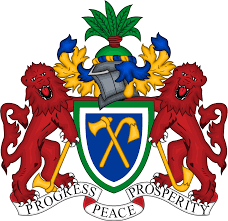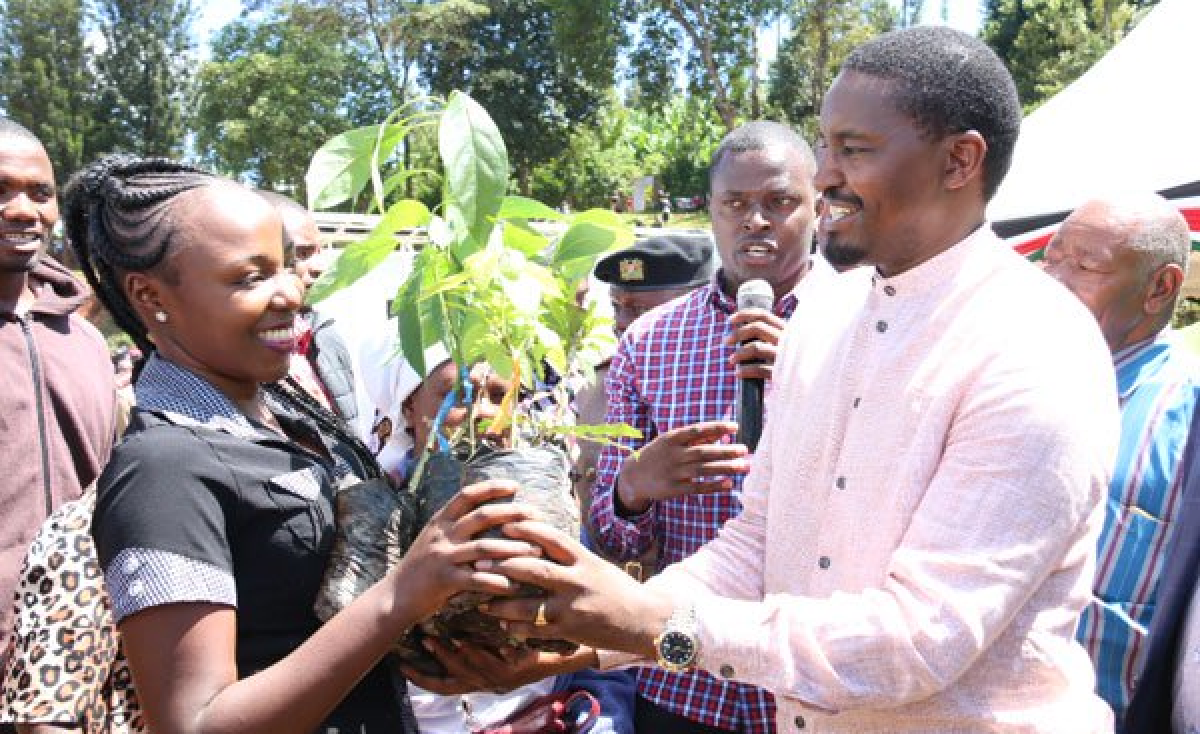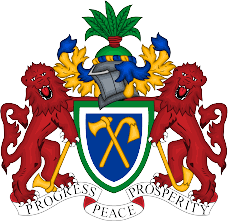 12 June, 2024
12 June, 2024
GIRAV Project gives 250MTs of certified seeds to DoA for distribution
The Ministry of Agriculture, Livestock and Food Security procured the seeds through the World Bank funded Gambia Inclusive and Resilient Agricultural Value Chain Development Project (GIRAV). Component two of the project aims to increase agricultural productivity through climate-smart intensification of selected productive systems focusing on enhancing water management and fostering access to improved technologies and innovations.
Some of the rice and maize seeds of different varieties were locally sourced from Maruo Farms whilst some varieties which were not available locally were sourced from Senegal and Mali with the technical assistance of CORAF – The West and central African Council for Agricultural Research and Development.
Dr. Demba Sabally, Minister of Agriculture, Livestock and Food security presided over the official handing over of the seeds to the Department of Agriculture at a ceremony hosted by the National Seed Secretariat at Abuko. He described the event as yet another demonstration of the shared objective of the government of The Gambia and the World Bank in the pursuit of ‘our long-standing’ partnership. He used the occasion to convey government’s thanks and appreciation to the World Bank for supporting the initiative.
He said: “The GIRAV project is one of the numerous initiatives of the government of His Excellency, President Adama Barrow designed to contribute meaningfully to the achievement of the New National Development Plan (YIRIWA) and all its related national sectoral policies and programmes, as well as the World Bank Group’s (WBG’s) twin goals of ending extreme poverty and boosting shared prosperity. GIRAV is also a key conduit for the realization of the African Union Agenda 2063 and the United Nations’ Sustainable Development Goals (SDGs) agenda 2030.
“Data and testimonies from the field have shown that the 2022 and 2023 Seeds Supports as well as the Fertilizer programme have contributed remarkably to increased production and productivity as well as increased incomes for the smallholder farmers. I have been reliably informed that most of the farmers who benefitted from the previous seeds support are now seed secured. Some are certified seed growers and others have been selling maize grains to our local poultry producers and thus reducing the perennial challenge of access to poultry feed for them.
“This remarkable achievement is a clear testament that the project is contributing meaningfully towards actualizing the government’s drive for sustainable Agricultural Transformation with specific focus on promoting the development of inclusive, resilient and market-oriented agriculture leaving no one behind”.
“I want to use this platform and inform farmers that as we as a sector continue to provide you with improve panting materials, we also want to implore all you to begin look inward and start producing your own seeds which is more sustainable”.
Minister Sabally encouraged all actors in the rice, maize and poultry related innovative platforms which were set up by the project in close partnership with the Implementing Partners to step up their activities to stimulate jobs creation and economic growth.
Abdoulie Touray, Coordinator of the GIRAV Project and the Central Projects Coordinating Unit (CPCU) in his introductory remarks explained that most of the rice varieties are salt, flood and drought tolerant and are also suitable for both lowland and irrigated ecologies. “Others are suitable for both lowland and upland fields and all of these varieties including the maize seeds are early maturing and high-yielding. At least 12,500 smallholder farmers across the country will benefit from this support.
Mr. Touray reminded the gathering that the Development Objective of GIRAV is to promote the development of inclusive, resilient, and competitive agricultural value chains, focusing on smallholder farmers and agribusinesses and, improving access to Water supply and Sanitation (WASH) in project target areas. He noted that since its inception in 2022, the project has provided a total of 500 MTs of certified Maize and Rice seeds which were distributed amongst over 26,000 smallholder farmers across the country more than 50 % of whom are women.
Mr. Touray used the opportunity to thank the DoA for being a reliable partner in the implementation of the seeds programme. He enjoined the Agriculture Extension workers to ensure real-time data collection, analysis and reporting noting that the final data on the seed programme must be ready for dissemination through the project’s 3rd quarter progress report which will be due for submission to the World Bank by 15th August 2024.
Mr. Morro Manga, Director General, National Seeds Secretariat dilated on the importance of quality seeds for improved agricultural production and productivity. He noted that the GIRAV procured seeds have undergone a rigorous certification process in line with national and the ECOWAS-CILSS Seed Regulations. He reiterated the need for concerted actions and partnership to move the seed sector forward to support Agricultural Transformation. In her welcome remarks, Mrs. Papia Badgie paid tribute to the GIRAV project for its lives changing interventions targeting both smallholder farmers and the Agriculture Extension Service across the country.
Mr. Mod Secka, Permanent Secretary, Ministry of Agriculture, Livestock and Food security who chaired the event urges farmers to prioritise achieving seeds security to enable them become food secured.
About the Project
GIRAV is a five-year 40 million US Dollar grant from the World Bank. The project aims to support and promote the development of inclusive, resilient, and competitive market oriented agricultural value chains (rice, maize, horticulture including mango, cashew and poultry) with specific focus on smallholder farmers and agri-businesses. The project is being executed by the Ministry of Agriculture, Livestock and Food security and implemented by the Ministry’s Central Projects Coordinating Unit (CPCU) and 18 other Implementing Partners.
Seeds Distribution
The distribution of the seeds amongst interested farmers will be conducted by the decentralized structures of the Department of Agriculture (DoA) across the seven Agricultural regions of the country. DoA is one of the 18 Implementing Partners of the project and has deployed more than 100 extension workers across the country to digitally register the farmers receiving the seeds. Each is equipped with a tablet and the technical know-how to ensure real-time data collection and reporting to the central CPCU database daily.


